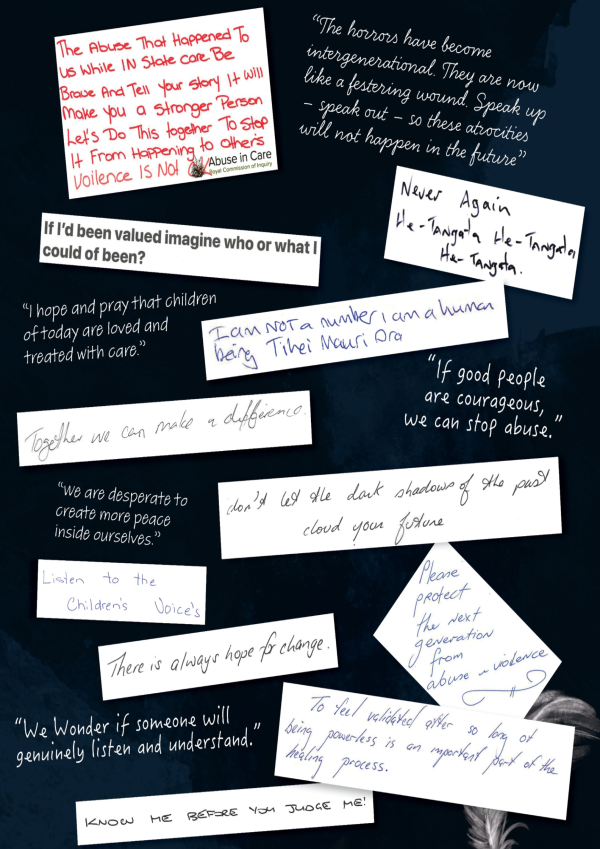Chapter 1: Introduction Upoko 1: He whakatakinga
1. This part sets out the purpose of the Royal Commission of Inquiry into Historical Abuse in State Care and in the care of Faith-based Institutions (the Inquiry) and describes the processes used to carry out its work.
2. Chapter 2 sets the scene by describing the sequence of events that led to the Inquiry being established.
3. Chapter 3 describes how the Inquiry came about. It explains the Terms of Reference, which set out the Inquiry’s purpose and scope, and the matters that are out of scope. This chapter also explains how and why the Terms of Reference changed during the Inquiry.
4. Chapter 4 provides data about how many survivors took part in the Inquiry and an overview of what they shared.
5. Chapter 5 describes how the Inquiry carried out its work, including how evidence and information was gathered. It describes the ways the Inquiry engaged with survivors, whānau and communities. It explains how the Inquiry’s advisory and reference groups provided input and feedback on analysis. It describes the kinds of evidence and information the Inquiry gathered and the processes it followed to make sure the Inquiries reports were impartial, fair and accurate.
6. Chapter 6 explains the frameworks the Inquiry used to guide its approach as well as its investigations and analysis. Some of the frameworks used are recognised as having weight in domestic and international law (te Tiriti o Waitangi, human rights). Other frameworks are the values and principles held by communities that shape how they see the world (ngā tikanga me te ao Māori, Deaf, disability, and mental distress framework, and Pacific values framework).
Ngā pānui ki ngā tāngata o Aotearoa
Messages to the people of Aotearoa New Zealand
These words are from survivors who met with the Inquiry kanohi ki te kanohi (face to face) in a confidential private session. The Inquiry gave them the opportunity to write a message to Aotearoa New Zealand on a postcard.

